
Thomas Mifflin was an American merchant, soldier, and politician from Pennsylvania, who is regarded as a Founding Father of the United States for his roles during and after the American Revolution. Mifflin signed the United States Constitution, was the first governor of Pennsylvania, serving from 1790 to 1799, and was also the state's last president, succeeding Benjamin Franklin in 1788.

John Laurance was a delegate to the 6th, 7th, and 8th Congresses of the Confederation, a United States representative and United States Senator from New York and a United States district judge of the United States District Court for the District of New York.
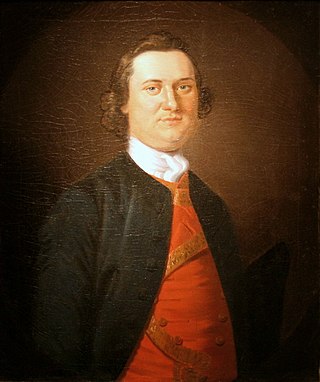
Lewis Morris was an American Founding Father, landowner, and developer from Morrisania, New York, presently part of Bronx County. He signed the U.S. Declaration of Independence as a delegate to the Continental Congress from New York.
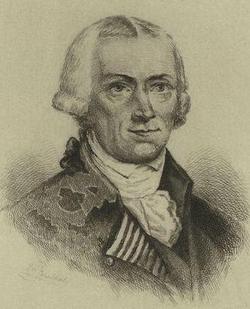
Walter Livingston was an American merchant, lawyer and politician.
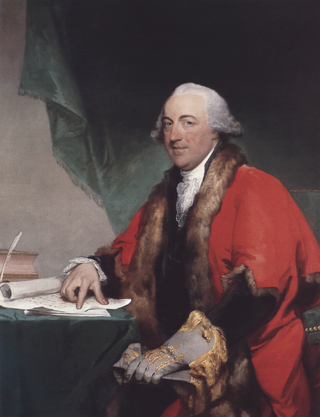
Henry Cruger Jr. was an American and British merchant at the time of the American Revolution. He has a unique distinction of having been elected to both the Parliament of Great Britain and the New York State Senate (1792–1796).
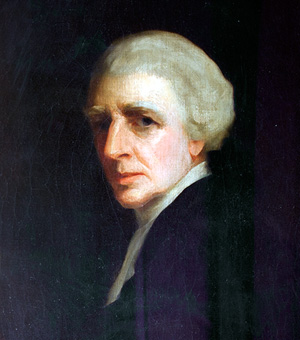
Jacob Rutsen Hardenbergh was an American Dutch Reformed clergyman, colonial and state legislator, and educator. Hardenbergh was a founder of Queen's College—now Rutgers, The State University of New Jersey—in 1766, and was later appointed as the college's first president.

Samuel Provoost was an American clergyman. He was the first chaplain of the United States Senate and the first bishop of the Episcopal Diocese of New York, as well as the third Presiding Bishop of the Episcopal Church, USA. He was consecrated as bishop of New York in 1787 with Bishop William White. He was the first Episcopal Bishop of Dutch and Huguenot ancestry.

Dr. Thomas Tillotson was an American physician and politician.
Peter Robert Livingston was an American politician who served as the acting lieutenant governor of New York from February to October 1828.
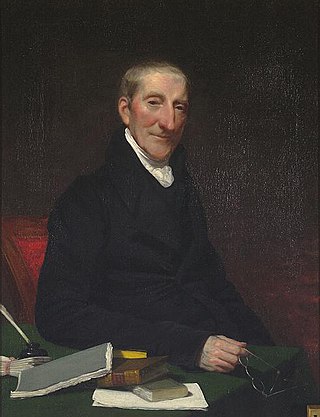
William Denning was a merchant and United States Representative from New York.

Thomas Storm was an American Revolutionary war officer and state legislator, rising to Speaker of the New York State Assembly in 1802.
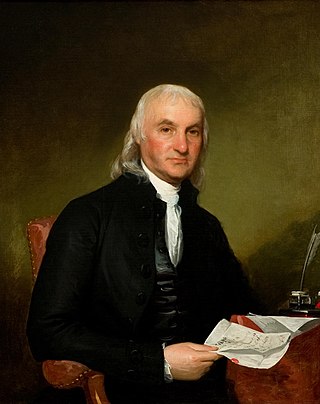
Isaac Roosevelt was an American merchant and Federalist politician. He served in the New York State Assembly and the state Constitutional Convention and achieved the most political success of any Roosevelt before Theodore Roosevelt. Isaac was the patrilineal great-great-grandfather of President Franklin Delano Roosevelt. He was the second generation of what would later come to be known as the Hyde Park, New York branch of the extended Roosevelt family. Isaac's fortune from the refining of sugar, and his political accomplishments, became an essential root of the substantial wealth, prominence and influence that the Hyde Park Roosevelts came to amass.

Josiah Ogden Hoffman was an American lawyer and politician.

John Ten Eyck Lansing Jr., a Founding Father of the United States, was an attorney, jurist, and politician.

Abraham Ogden was an American lawyer and politician who served as U.S. Attorney for the District of New Jersey from 1791 to 1798 and negotiated the Treaty of New York (1796).

John Mathews was a Founding Father of the United States and lawyer from Charleston, South Carolina. He was a delegate to the Continental Congress from 1778 to 1781 where he endorsed the Articles of Confederation on behalf of South Carolina. On his return, he was elected the 33rd governor of South Carolina, serving a single term in 1782 and 1783.

The 13th New York State Legislature, consisting of the New York State Senate and the New York State Assembly, met from July 6, 1789, to April 6, 1790, during the thirteenth year of George Clinton's governorship, first in Albany, then in New York City.

Col. Leonard Lispenard was a New York City merchant, politician and landowner.

Richard Morris was an American lawyer and politician from New York. He was chief justice of the New York Supreme Court from 1779 to 1790.
Gilbert Livingston was a lawyer who, in 1788, served as a delegate to the Poughkeepsie Convention where, despite having arrived at the convention as an Anti-Federalist, he ultimately voted to ratify the United States Constitution. Both before and after that ratification convention, he served in the New York Assembly, representing Dutchess County. Livingston had also been a member of the New York Provincial Congress.